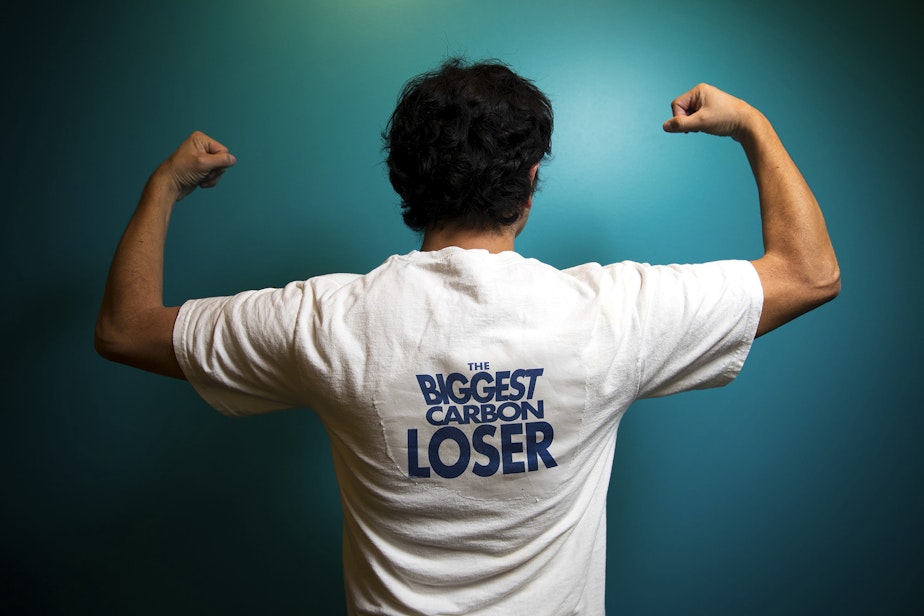Hey KUOW, why a contest for The Biggest Carbon Loser?

The earth’s climate, as you may have heard, is pretty messed up right now. Megacities flooding, a continent afire, etc. And it’s heading into much more dangerous territory.
KUOW often gets questions from listeners and readers, asking what they can do about this global crisis. It’s not a simple question.
KUOW journalists avoid advocacy, and we avoid telling people what they should do. Yet if a tsunami were on its way to the Washington coast, it would be our job to warn people and get life-saving information to them.
Climate change has become that severe -- a threat to the global community, a sort of worldwide tsunami, caused by humans.
Here’s how the scientists of the IPCC (the United Nations Intergovernmental Panel on Climate Change) put it in 2018: “Limiting global warming to 1.5°C would require rapid, far-reaching and unprecedented changes in all aspects of society.”
In other words: all hands on deck.
Sponsored
Most experts agree that immediate, systemic change at the highest levels of government and business are required to fend off climate catastrophe. Few, if any, governments are doing anything near what science says is needed, while many businesses keep making the problem worse.
At the individual level, we also contribute to the problem to varying degrees – and we can all contribute to solutions.
Perhaps one way a news organization can contribute is to get more people talking and involved in tackling this undeniably dire problem. We came up with The Biggest Carbon Loser contest as a different, even fun, way to push this conversation forward.
- We’re tracking three Seattle-area contestants as they compete to lower their carbon footprints while living in a world that was largely designed without concern for the climate.
- We’ve brought on three “carbon coaches” to help steer them to effective ways to cut carbon from their particular lives.
- We’re using their efforts to look at the bigger forces that push our region into, or away from, wrecking the climate.
- Each contestant is taking the month of January to tally their business-as-usual carbon footprints, then will spend February trying to decarbonize their lives as much as they can.
- Whoever loses the most carbon, wins.
Some climate activists say no one should worry about their own carbon output when vastly greater clouds of pollution are puffed out by big businesses and the governments that (under) regulate them.
Sponsored
“Focus on systems, not yourself,” Oregon activist Emma Marris writes. “The rich and powerful have constructed systems that make it nearly impossible to live lightly on the earth.”
“The vast majority of global greenhouse gas emissions come from just a handful of corporations — aided and abetted by the world’s most powerful governments,” Mary Annaise Heglar with the Natural Resources Defense Council writes.
That statement is accurate only if you assume that those corporations’ customers, the ones who actually burn the fossil fuels in their cars and buildings, bear zero responsibility for their use of those products.
However that responsibility should be portioned out, it’s a basic fact of physics: the more anyone pollutes, the more damage they do to the climate.
Many people who work on climate change have taken steps to reduce their own footprints: to lead by example, to avoid charges of hypocrisy or to gain the peace of mind that can come with living in line with one’s values.
Sponsored
Texas Tech University climate scientist Katherine Hayhoe adds two new low-carbon habits to her life every year.
New York Times reporter Hiroko Tabuchi, who covers the intersection of climate and business, says she finds it motivating to make personal-level changes for the climate.
“They remind me every day that we’re in a climate crisis and must act now,” she writes.
While trimming your own carbon output might be a distraction from necessary systemic changes, talking about it might just help keep all our eyes on the prize: decarbonizing the economy soon enough to ward off climate catastrophe.

